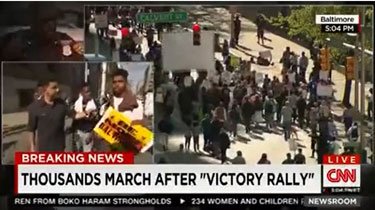Category Archive 'Ethics'
23 Jun 2016


The Trump Campaign is almost broke, but apparently The Donald has been siphoning off roughly 20% of campaign expenses to his own businesses.
But that’s nothing. (See Below) Donald Trump actually has himself on the campaign payroll as a salaried employee!
Just imagine what he could do with the Executive Branch budget.
Marketwatch:
Donald Trump’s campaign is almost broke, and is paying an unusual amount of money to Trump-owned businesses. That’s according to the presumptive Republican presidential nominee’s FEC filing, details of which were released Monday night.
The report provided a number of rather shocking facts, including that his campaign raised just $3.1 million in May compared to Democratic rival Hillary Clinton’s $27 million.
In comparison, Mitt Romney’s campaign raised $86.5 million in May during the 2012 presidential race. And on Monday night alone, Clinton raised about $1.6 million at a celebrity-studded fundraiser in New York City.
Another eyebrow-raising tidbit: Of the $6.7 million the Trump campaign spent in May, nearly 20% went to Trump-owned businesses or family members.
Furthermore, the filing suggests that Trump himself is drawing a salary from the campaign, which would be highly unusual.
The campaign also spent $208,000 on hats.
The phrase “Crooked as a snake with appendicitis” comes to mind.

24 Oct 2015


Self-driving cars! What could be better? Instead of hundreds of millions of individuals making individual decisions moment by moment, the experts managing the administrative state could decide what lane you’re in, how fast you travel, and –in extremis– whether you live or die. The fear is that unenlightened bitter clingers might object.
Technology Review:
Imagine that in the not-too-distant future, you own a self-driving car. One day, while you are driving along, an unfortunate set of events causes the car to head toward a crowd of 10 people crossing the road. It cannot stop in time but it can avoid killing 10 people by steering into a wall. However, this collision would kill you, the owner and occupant. What should it do?
One way to approach this kind of problem is to act in a way that minimizes the loss of life. By this way of thinking, killing one person is better than killing 10.
But that approach may have other consequences. If fewer people buy self-driving cars because they are programmed to sacrifice their owners, then more people are likely to die because ordinary cars are involved in so many more accidents. The result is a Catch-22 situation.
Read the whole thing.
03 May 2015

1:00 video
Nick Valencia (CNN Reporter):”What is it like, explain to our viewers exactly what it’s like to be a young, black man, growing up in Baltimore.”
Jamal: “We gotta struggle. We gotta grind. You know, everything that you get, you gotta earn it. Nobody…”
Nick: “What does that mean? What does that mean? Explain, don’t speak in abstract.”
Jamal: “You gotta earn it. Like… like if there’s food over there, and they’re saying you can’t have it, you gotta take it. Sometimes, you gotta… if it’s yours, you gotta take it.”
19 Jan 2015

Mallory Ortberg shares with us a characteristically morally engagée letter from Ayn Rand to a relative who asked her for a small loan.
The Letters of Ayn Rand is a thing of beauty and a joy forever. It is a perpetual source of comfort and inspiration to me. Every morning, Ayn Rand must have thrust herself forth from her steel bed and asked herself “What is the most Ayn Rand thing that I can do today?â€
On May 22, 1949, the answer was to write a letter to her young niece, who had sent her a short note asking to borrow $25 for a new dress. …
Read the whole thing.
Andrew Sullivan (characteristically anti-mind, anti-man, anti-life) thought that this letter was “horrible.” Some of us, on the other hand, find dear old Ayn’s dramatic moral scrupulousness endearing, if perhaps just a little tiny bit daft.
05 Nov 2013

Alyssa Bereznak, in Salon, describes a childhood blighted by a selfish and unfeeling father, and tells us that it was reading Ayn Rand that made him that way.
The Bereznaks generally must be careless and inaccurate readers because, after all, Ayn Rand’s protagonists do noble and generous acts and without the slightest hesitation throw away their companies and careers for their principles or to protect their loved ones. Ayn Rand just thought that acting in the interest of loved ones was really a selfish act, as the loved one is looked upon as an extension of the self. Bereznak père was clearly defective as a Randian as well as as a father.
21 Jun 2013


The Immigration debate has a tendency to turn red-blooded conservatives into censorious old ladies, who are shocked, shocked and indignant and offended that Hispanic immigrant laborers would have the temerity to violate THE LAW.
Sophisticated people realize that there are laws and there are laws. During first year of law school, the distinction is universally explained between Malum in se, actions, like murder and theft, which are genuinely wrong and violative of Natural Law, and Malum prohibitum, things, like overtime parking, which are illegal only because of some arbitrary regulatory enactment.
Entering the United States in order to improve one’s condition through honest work is obviously merely Malum prohibitum, the violation of a regulation, not something evil in and of itself.
As I remarked in a previous posting, a lot of freedom-loving Americans (and even conservatives) are notorious for their lack of respect for mere regulation. They had to repeal Prohibition because so many Americans ignored the law. The 55 mph speed limit is nearly universally flouted by American motorists. Americans commonly violate current drug laws in much the same way they used to violate liquor laws. What percentage of graduates of elite universities have never smoked pot? The number must be very very small.
It is just plain silly, and not especially manly or becoming, to go around striking sanctimonious poses and ranting about “enforcing the law.” The philosopher Robert Paul Wolff wrote a small monograph in 1970, titled In Defense of Anarchism, in which he demonstrated that, really, everyone has some point of independent moral judgement at which he will cease to obey the edicts of the State. TYPICAL EXAMPLE: The Gestapo Standartenführer demands that you reveal the hiding place of some Jews.
Sometimes “the law is an ass,” sometimes the law is immoral, sometimes the law is simply obtrusive and inconvenient, and we ignore it.
When our sclerotic, unprincipled, and embodying-no-useful-purposes contemporary immigration regulations provide no opportunity for desperate people to enter the country, and some, determined to support themselves and their families and to better their condition, ignore those regulations and enter anyway, my sympathies are with them. America was founded by, and for, the enterprising, the daring, and the rebellious. The country came into being as the result of a general inclination toward resistance to arbitrary regulation and authority.
I’ve read indignant editorial after indignant editorial complaining about illegal immigrants “jumping ahead in the line” and “not playing by the rules.” Frankly, I think those arguments represent nothing more than opportunistic poses. Why do we even need a line? People come here to work because we need their services and we hire them. The market is a self-correcting mechanism. If we do not need more low-skilled Hispanic laborers, jobs will not exist, and they won’t come here. We do not need a quota system and a line to keep someone from mowing my lawn. I do not care if Jose Jimenez violated some pointless federal regulations, which as far as I am concerned do not need to exist. If he stands up, sits down, turns around, says “Simon says,” and goes through all the rigmarole required, none of that benefits me or anybody else at all. What benefits me and the country generally is the availability of affordable labor. I don’t need some federal form filled in. I need yard work and some roof shingling done.
Real morality is on the side of the illegal immigrants. Spouting law-and-order-ism and demanding that everyone follow pointless and arbitrary rules is the function of busybodies and old ladies and Statists.
31 May 2013

Hat tip to Jose Guardia.
19 May 2011


One of the problems with appointing prominent members of a presidential administration to the Supreme Court is the issue that if litigation connected with a piece of legislation or executive order that official had a hand in crafting should subsequently occur, he (or she) might find it necessary to recuse himself from participation in the case.
Recusal is not an optional choice. 28 U.S.C. § 455 specifically states:
Any justice, judge, or magistrate judge of the United States shall disqualify himself in any proceeding in which his impartiality might reasonably be questioned. …
(including)
Where he has served in governmental employment and in such capacity participated as counsel, adviser or material witness concerning the proceeding or expressed an opinion concerning the merits of the particular case in controversy.
Supreme Court Associate Justice Elena Kagan has denied being involved in preparations for court defense of Obamacare while she was serving as Solicitor General, and declined to recuse herself from the Supreme Court decision of April 2011 refusing to “fast-track†for review Virginia’s lawsuit challenging Obamacare.
Judicial Watch sued under the Freedom of Information Act and has obtained documents suggesting that Justice Kagan may have a serious problem here.
According to a January 8, 2010, email from Neal Katyal, former Deputy Solicitor General (and current Acting Solicitor General) to Brian Hauck, Senior Counsel to Associate Attorney General Thomas Perrelli, Kagan was involved in the strategy to defend Obamacare from the very beginning:
Subject: Re: Health Care Defense:
Brian, Elena would definitely like OSG [Office of Solicitor General] to be involved in this set of issues…we will bring in Elena as needed. [The “set of issues†refers to another email calling for assembling a group to figure out “how to defend against the…health care proposals that are pending.â€]
On March 21, 2010, Katyal urged Kagan to attend a health care litigation meeting that was evidently organized by the Obama White House: “This is the first I’ve heard of this. I think you should go, no? I will, regardless, but feel like this is litigation of singular importance.â€
In another email exchange that took place on January 8, 2010, Katyal’s Department of Justice colleague Brian Hauck asked Katyal about putting together a group to discuss challenges to Obamacare. “Could you figure out the right person or people for that?†Hauck asked. “Absolutely right on. Let’s crush them,†Katyal responded. “I’ll speak with Elena and designate someone.â€
However, following the May 10, 2010, announcement that President Obama would nominate Kagan to the U.S. Supreme Court, Katyal position changed significantly as he began to suggest that Kagan had been “walled off†from Obamacare discussions.
For example, the documents included the following May 17, 2010, exchange between Kagan, Katyal and Tracy Schmaler, a DOJ spokesperson:
Shmaler to Katyal, Subject HCR [Health Care Reform] litigation: “Has Elena been involved in any of that to the extent SG [Solicitor General’s] office was consulted?…
Katyal to Schmaler: “No she has never been involved in any of it. I’ve run it for the office, and have never discussed the issues with her one bit.â€
Katyal (forwarded to Kagan): “This is what I told Tracy about Health Care.â€
Kagan to Schmaler: “This needs to be coordinated. Tracy you should not say anything about this before talking to me.â€
Included among the documents is a Vaughn index, a privilege log which describes records that are being withheld in whole or in part by the Justice Department. The index provides further evidence of Kagan’s involvement in Obamacare-related discussions.
For example, Kagan was included in an email chain (March 17–18, 2010) in which the following subject was discussed: “on what categories of legal arguments may arise and should be prepared in the anticipated lawsuit.†The subject of the email was “Health Care.†Another email chain on March 21, 2010, entitled “Health care litigation meeting,†references an “internal government meeting regarding the expected litigation.†Kagan is both author and recipient in the chain.
The index also references a series of email exchanges on May 17, 2010, between Kagan and Obama White House lawyers and staff regarding Kagan’s “draft answer†to potential questions about recusal during the Supreme Court confirmation process. The White House officials involved include: Susan Davies, Associate White House Counsel; Daniel Meltzer, then-Principal Deputy White House Counsel; Cynthia Hogan, Counsel to the Vice President; and Ronald Klain, then-Chief of Staff for Vice President Biden. The DOJ is refusing to produce this draft answer.
Judicial Watch describes itself as conducting an ongoing investigation of the matter.
The documents obtained so far fail to produce absolute “smoking gun” proof that Kagan violated the law in failing to recuse herself, but all the evidence of collaboration over accounts is extremely suggestive.
Ace aptly observes:
Just a crazy question here — has anyone said “We’ve got to get our stories straight” when everyone involved was planning on telling the truth?
Are “coordinated” stories generally more credible than uncoordinated, unscripted ones? I guess the Obama White House thinks so.
“Coordination”
It’s a hip, smart way to say “lying.”
18 Jun 2009


Yesterday’s New York Times reported that Sonia Sotomayor defends her membership in a females-only influence-sharing club as non-violative of Canon 2 of the Code of Conduct for US Judges, which reads:
A judge should not hold membership in any organization that practices invidious discrimination on the basis of race, sex, religion, or national origin.
I am a member of the Belizean Grove, a private organization of female professionals from the profit, nonprofit and social sectors,†Judge Sotomayor wrote. “The organization does not invidiously discriminate on the basis of sex. Men are involved in its activities — they participate in trips, host events and speak at functions — but to the best of my knowledge, a man has never asked to be considered for membership.â€
She added: “It is also my understanding that all interested individuals are duly considered by the membership committee. For these reasons, I do not believe that my membership in the Belizean Grove violates the Code of Judicial Conduct.
——————————-
Personally, I disagree with Canon 2, and think judges and everyone else should enjoy freedom of voluntary association, but Judge Sotomayor I expect would be one of the first to insist on strict enforcement of that politically correct standard on everyone but herself.
Is she right in maintaining that the Belizean Grove, a club with 115 female members, is non-discriminatory on the basis of sex?
Here is the club’s own description, you decide.
The Belizean Grove is a constellation of influential women who are key decision makers in the profit, non-profit and social sectors; who build long term mutually beneficial relationships in order to both take charge of their own destinies and help others to do the same.â€
Having observed the power of the Bohemian Grove, a 130-year-old, elite old boys’ network of former Presidents, businessmen, military, musicians, academics, and non-profit leaders, and realizing that women didn’t have a similar organization, Susan Stautberg and 26 other founding members created the Belizean Grove, a constellation of influential women who are key decision makers in the profit, non-profit and social sectors; who build long term mutually beneficial relationships in order to both take charge of their own destinies and help others to do the same.
Members are highly accomplished leaders in a wide venue of fields, are dedicated to giving back to their communities, have a sense of humor and excitement about life and are willing to mentor and share connections. With this vision in mind, members are invited not only for their professional accomplishments but also for their generosity and compatibility.
The Grove is an international nurturing network that helps women pursue more significant dreams, ambitions, purposes, transcendence, and spiritual fulfillment, while also opening up more leadership opportunities to these women of diverse backgrounds, talents, ages, and skills. The Grovers are leaders from 5 continents, from profit, non-profit and social sectors. They are heads of major government agencies, businesswomen, military officers, academics, non-profit leaders, musicians, authors, diplomats, design gurus.
——————————
UPDATE 6/20:
Sotomayor resigned from the Belizean Grove yesterday, stating that she did not want her membership in the exclusuve female-only club to “distract anyone from my qualifications and record.”
Some news agency story.
08 Jun 2009


Barack Obama’s strongest asset (beyond his smooth mellifluous announcer’s voice) is the authority he derives from being careful to speak always in an earnest and moderate manner while occupying the moral high ground. Obama was elected largely because he successfully persuaded a majority of Americans that he was trustworthy and responsible, that he possessed moral authority.
Obama’s moralism, like Obama’s moderation, unfortunately, is simply a long-practiced ruse. He discovered as an adolescent dealing with his grandmother that he could get his way, or get out of trouble as necessary, by talking softly and sounding mature and responsible. White people, he wrote in his autobiography, were simply delighted, and became infinitely pliable, when they encountered a nice, respectable young black man who talked softly and carefully avoided scaring them.
Mark Hyman has an article showing that Obama has demonstrated by his actions that his real self is a good deal different from his carefully cultivated public image. The pretend Obama is Olympian, noble, disinterested, kind, and good. The real Obama is the most partisan occupant of the White House in living memory, ruthless, shady, and vindictive.
17 Feb 2009

In the Atlantic, James Fallows recalls an Ethics In America panel discussion on PBS in the 1980s.
First, moderator Charles Ogletree asked a former American officer who had served in Vietnam if he would, in a hypothetical situation in which he could thereby save American lives, if he would forcibly extract the necessary information from a captured prisoner using torture.
The former officer said he would, but other representatives of the US military, including General William Westmoreland, disagreed, and made opposing arguments.
Then Ogletree turned to the two most famous members of the evening’s panel. … These were two star TV journalists: Peter Jennings, of World News Tonight and ABC, and Mike Wallace, of 60 Minutes and CBS.
Ogletree brought them into the same hypothetical war. He asked Jennings to imagine that he worked for a network that had been in contact with the enemy North Kosanese government. After much pleading Jennings and his news crew got permission from the North Kosanese to enter their country and film behind the lines. …
But while Jennings and his crew were traveling with a North Kosanese unit… they unexpectedly crossed the trail of a small group of American and South Kosanese soldiers. With Jennings in their midst the Northern soldiers set up an ambush that would let them gun down the Americans and Southerners.
What would Jennings do? Would he tell his cameramen to “Roll tape!” as the North Kosanese opened fire? What would go through his mind as he watched the North Kosanese prepare to fire?
Jennings sat silent for about fifteen seconds. “Well, I guess I wouldn’t,” he finally said. “I am going to tell you now what I am feeling, rather than the hypothesis I drew for myself. If I were with a North Kosanese unit that came upon Americans, I think that I personally would do what I could to warn the Americans.”…
Ogletree turned for reaction to Mike Wallace, who immediately replied. “I think some other reporters would have a different reaction,” he said, obviously referring to himself. “They would regard it simply as another story they were there to cover.” A moment later Wallace said, “I am astonished, really.” He turned toward Jennings and began to lecture him: “You’re a reporter. Granted you’re an American” (at least for purposes of the fictional example; Jennings has actually retained Canadian citizenship). “I’m a little bit at a loss to understand why, because you’re an American, you would not have covered that story.”
Ogletree pushed Wallace. Didn’t Jennings have some higher duty to do something other than just roll film as soldiers from his own country were being shot?
“No,” Wallace said flatly and immediately. “You don’t have a higher duty. No. No. You’re a reporter!”
Jennings backtracked fast. Wallace was right, he said: “I chickened out.” Jennings said that he had “played the hypothetical very hard.”He had lost sight of his journalistic duty to remain detached.
As Jennings said he agreed with Wallace, several soldiers in the room seemed to regard the two of them with horror. Retired Air Force General Brent Scowcroft, who would soon become George Bush’s National Security Advisor, said it was simply wrong to stand and watch as your side was slaughtered. “What’s it worth?” he asked Wallace bitterly. “It’s worth thirty seconds on the evening news, as opposed to saving a platoon.”
After a brief discussion between Wallace and Scowcroft, Ogletree reminded Wallace of Scowcroft’s basic question. What was it worth for the reporter to stand by, looking? Shouldn’t the reporter have said something ?
Wallace gave a disarming grin, shrugged his shoulders, and said, “I don’t know.” He later mentioned extreme circumstances in which he thought journalists should intervene. But at that moment he seemed to be mugging to the crowd with a “Don’t ask me!”expression, and in fact he drew a big laugh—the first such moment in the discussion. Jennings, however, was all business, and was still concerned about the first answer he had given.
“I wish I had made another decision,” Jennings said, as if asking permission to live the past five minutes over again. “I would like to have made his decision”—that is, Wallace’s decision to keep on filming.
A few minutes later Ogletree turned to George M. Connell, a Marine colonel in full uniform. Jaw muscles flexing in anger, with stress on each word, Connell said, “I feel utter contempt.”
Two days after this hypothetical episode, Connell said, Jennings or Wallace might be back with the American forces—and could be wounded by stray fire, as combat journalists often had been before. When that happens, he said, they are “just journalists.” Yet they would expect American soldiers to run out under enemy fire and drag them back, rather than leaving them to bleed to death on the battlefield.
“I’ll do it!” Connell said. “And that is what makes me so contemptuous of them. Marines will die going to get . . . a couple of journalists.” The last words dripped disgust.
Not even Ogletree knew what to say. There was dead silence for several seconds. Then a square-jawed man with neat gray hair and aviator glasses spoke up. It was Newt Gingrich, looking a generation younger and trimmer than he would when he became speaker of the House, in 1995. One thing was clear from this exercise, Gingrich said. “The military has done a vastly better job of systematically thinking through the ethics of behavior in a violent environment than the journalists have.”
12 Feb 2009
Until recent times, for most people, both food and sex were considerably less available than they are today.
In the Hoover Institute’s Policy Review, Mary Eberstadt meditates on the curious way in which, at the present time, the community of fashion has come to place a strongly principled ethical focus on eating, just when old-style sexual morality has been replaced by total latitudinarianism.
—————————–
Hat tip to Karen L. Myers.
/div>

Feeds
|














